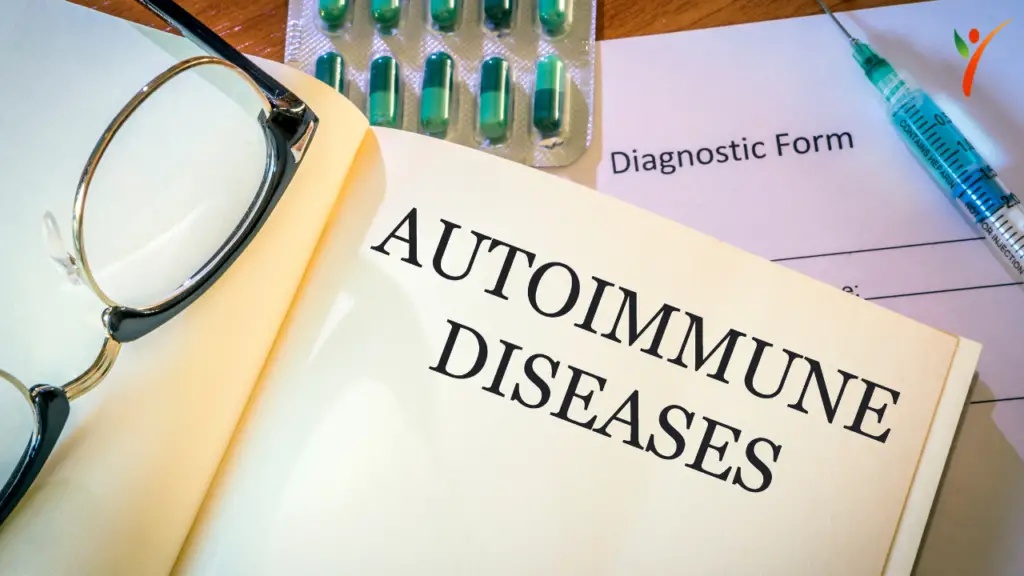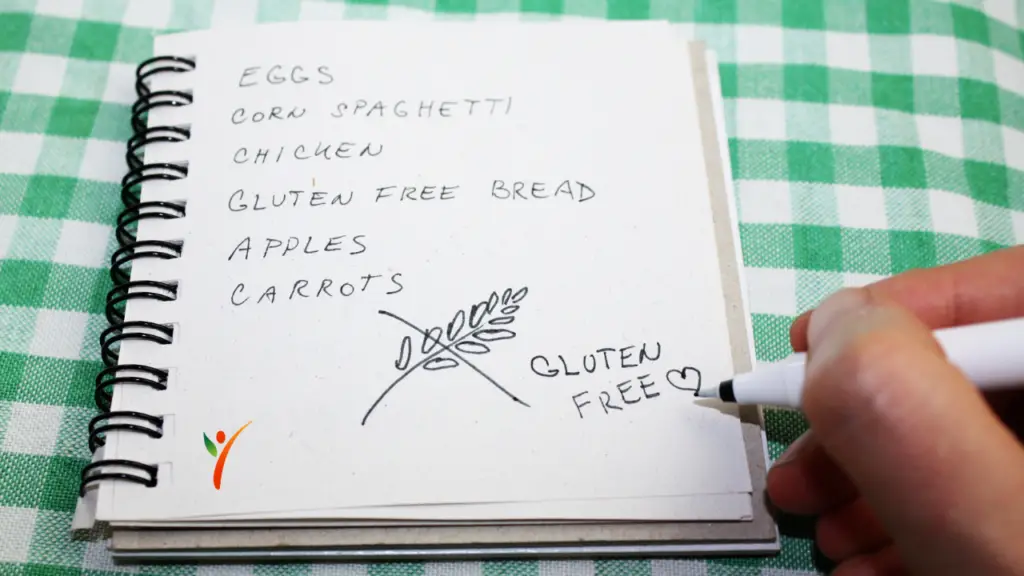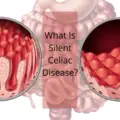The Celiac Disease Foundation reported that the number of people diagnosed with celiac is doubling each year. And the fact that 97% of the population doesn't even know they gave Celiac makes it a frightening scenario.
1-3% of people who undergo treatment for this disease have to stay on a gluten-free diet for the rest of their lives. That means Celiac is not a curable disease. Hence, it never goes away.
After hearing this, the first question that arises in our minds is, “why does celiac never go away?”
Since Celiac is an autoimmune disorder that arises in the gut due to gluten, people diagnosed with it can never be healed. As it turns out, the older one gets without getting diagnosed for gluten-sensitivity, the worse the disease gets.
Let's start to understand the answer by learning a little bit about autoimmune disease.
In this article:
- What's an Autoimmune Disease?
- Latest Research & Studies On Treating Celiac
- Top Methods to Keep Celiac Under Control
- Following The Gluten-Free Diet
- Future Scope Of Treatment Methods For Celiac Disease
What's an Autoimmune Disease?

A straight answer is, ‘when our natural system of defense starts to attack its body's own cells instead of foreign ones because it can't tell the difference between both.'
There isn't a definite reason about the facts that why does this happen; however, some studies suggest that, at times, certain drugs or foods cause some changes in the immune system. That, in turn, triggers the bacteria and viruses to misidentify the body's host cells as that of a foreign one.
Gluten is one such protein found in wheat that triggers gut bacteria. The body goes into overdrive when someone diagnosed with gluten-sensitive enteropathy consumes gluten. Their villi get damaged, and one can see sharp projections along the lining of the small intestine.
Also, similar to any other autoimmune disease, celiac disease cannot be completely treated. Going gluten-free is one of the best possibilities to keep discomfort arising from this disease.
Now that we have an idea about autoimmune diseases, and how it is related to celiac, we will dig a little deeper to see what research says about treating celiac sprue.
Latest Research & Studies On Treating Celiac

In a recent experiment conducted by CMGH, the experts examined celiac patients on a strict gluten-free diet before and after facing gluten challenges. These individuals had been on this diet for a long-time. Below are the results of the experiment:
- People on a Gluten-Free Diet were healthier than before.
- Observed 98% positive inflammatory changes.
- Increase in hyperactive intestinal WNT signaling.
- Active Immune response genes.
- The epithelium was less differentiated.
- Mucosal injury in Duodenum was still present.
- Ongoing diseases followed a pattern.
In another research report released on 1st January 2021, Appetite experts studied 2982 US citizens who did not suffer from gluten-sensitivity yet had adopted a gluten-free diet. They questioned these people about the reason why they quit consuming gluten.
About 95% of these people believe that eliminating gluten reduces acne, is healthier, is more nutritious, and controls certain allergies. The beliefs were based on their analysis of positive changes in their health after incorporating the gluten-free diet.
More Research

A different study in a journal, Medical Hypotheses, conducted on non-responsive celiac disease, was observed for malabsorption and histamine intolerance. It highlighted the following results:
- H.P. Infection and food intolerance were found in 18 out of the 20 patients.
- 11 out of the 20 non-responsive celiac patients had histamine intolerance, while the other 6 displayed signs of the same.
- The histamine intolerance found in more than 50% of the patients was a major factor for the non-responsiveness to celiac disease, following a strict gluten-free diet.
- Journal of Clinical Immunology mentions a study conducted in 2013 in which they tried to analyze if Transglutaminase 2 (TG2) Inhibitors, cell-permeable R283, and cell-impermeable R281 can reduce the toxicity induced by Gliadin. Gliadin is a derivative of gluten. The study concluded the below results:
- Cell-Impermeable R281 was more effective than TG2 inhibitors in terms of protecting Caco-2 cells from Gliadin.
- R281, a TG2 inhibitor, also changed the increase in IL15-, and CD25-positive cells caused by gluten.
- These inhibitors also controlled the proliferation of crypt cells and Tregs.
- There was no effect on antibody secretion.
As per an article published in Nature Reviews Gastroenterology & Hepatology, which talks about the latest and emerging treatments for Celiac, they report various drugs that may effectively cure celiac disease at phase III of their clinical trials.
Top Methods to Keep Celiac Under Control
Irrespective of whether Celiac is not a completely treatable disease, one can take measures to keep this illness in check.
Eating A Gluten-Free Diet

It is, by far, the most recommended method to keep problems associated with gluten-sensitivity at bay. If you are not familiar, gluten is a protein found in grains such as rye, wheat, and barley. It is responsible for the stickiness present in these grains.
This protein attacks the small intestines and damages the villi in people who are sensitive to gluten. Damaging the villi does not let essential nutrients be absorbed by the body, which causes malnutrition.
Some of the major raw food items that contain gluten are wheat, rye, durum, barley, farina, malt, graham flour, and semolina.
Avoid Processed Food That Has Gluten
Almost every packaged food has wheat flour as the base material. In fact, certain medicines use wheat starch as binding agents that keep the tablets and capsules together.
Due to government rules and regulations on edible packaged goods, they need to mention all the pack ingredients. You can easily go through the ingredient list of any snack, drink, or medicine that you intend to purchase and not buy any products that contain gluten in them.
Adding Necessary Supplements to Your Diet
A gluten-sensitive person has multiple nutritional deficiencies. Some of those are fiber, iron, vitamin D, vitamin B12, magnesium, etc. Hence, celiac disease diagnosis also includes tests to determine levels of nutrients in one's body.
The medical professional is likely to prescribe you multiple supplements already. If not, ensure that you mention to the doctor about getting tested for nutrients levels as well.
Adding vital supplements will build up the immune system, help in faster metabolism, and keeps allergies at bay to a certain extent.
Our small intestines absorb these nutrients that lower the inflammation related to gluten-sickness.
For New Mothers, Breastfeeding Only
Every doctor recommends breastmilk and nothing else for new-borns for the first six months of the child's life.
Even if you do not have Celiac disease, it's essential to breastfeed an infant due to multiple reasons that prevent the immune system from going haywire. Breastmilk has nutrients like lysozyme, IgA antibodies, and lactoferrin. It is the best way to keep your child away from autoimmune diseases such as gluten-sensitivity.
Following The Gluten-Free Diet

Even if it seems difficult at the start, you will notice the difference once you continue a gluten-free diet for at least seven to ten days. To properly follow a diet that is the only current treatment for gluten-sensitive enteropathy, below are three categories of food that you can choose from:
- Naturally gluten-free food
- Gluten substitute food
- Gluten-free processed food
Naturally gluten-free food:
It goes without saying that switching to gluten-free food is quite important for a celiac disease patient.
Therefore, the first step to achieve this is to replace everything in the kitchen with gluten-free alternatives. From flour to packaged food, the removal of edibles to create a gluten-free kitchen is a must.
Some naturally gluten-free foods include soy, cassava, rice, potato, beans, and sorghum.
Gluten Substitute Food
In case you use flour as a base ingredient for almost all of your meals, then choosing different types that can substitute gluten-containing ingredients is a good idea. This way, you don't have to come up with a new dish to satisfy your stomach.
Some such gluten substitutes are:
- Quinoa porridge instead of oatmeal
- Eggs replacing toast or pancakes
- Psyllium or chia seed bran instead of wheat bran
- Wraps made of lettuce leaf
- Zucchini instead of pasta
- Almond flour instead of wheat flour.
Gluten-Free Processed Food
Get yourself into the habit of reading the food label before buying any of your food products. Since most of us don't pay attention to the ingredients present in packaged items, it can adversely trigger celiac patients' immune system if they unknowingly consume gluten-containing packaged food.
Some processed gluten-free food to choose from are:
- Jelly
- Peanut Butter
- Mustard
- Mayonnaise
- Plain tortilla and potato chips
- Hummus
- Rice cakes
- Fruit cups
- Salsa
- Applesauce
- Popcorn
Future Scope Of Treatment Methods For Celiac Disease

As per an article published in ScienceDaily, on 22nd October 2019, Northwestern University made a breakthrough in treating Celiac. Although the element is still in its clinical phase, scientists at this university discovered a biodegradable nanoparticle that contains gluten. This element guides the immune system about safe and unsafe antigens.
This technology is based on the nanoparticle's ability to trap allergens in a shell so that the immune system cannot attack it.
The breakthrough has also set a path for patients of multiple sclerosis, peanut allergies, asthma, and many more to be completely curable.
Licensed by COUR Pharmaceuticals Co, the founder of this pharma company aims at launching this element as soon as it passes the final stages of clinical trials.
In short, the future scope of treating Celiac looks bright. Suppose this kind of treatment is ever launched. In that case, it will prove highly beneficial for the 1% population of the world to get rid of not just gluten-sensitivity but also of almost all autoimmune diseases.
Final Words

The direct answer to ‘Does Celiac Ever Go Away?' for now is, NO, celiac never goes away. The mental, physical, and emotional toll that patients with gluten-sensitivity go through is painful and frustrating.
From changing the diet entirely to purchasing more expensive gluten substitutes, celiac patients are awaiting proper medical treatment for this disease. Since this is an autoimmune illness where the immune system starts to attack good allergens, the only way the doctors know best to cure this illness is to stay away from the cause.
No matter how strictly we follow the gluten-free diet, the small intestines' inflammation rarely goes away. It happens either due to our food still consisting of small amounts of gluten or our immune system still attacking good allergens.
As most doctors say to celiac patients, “a gluten-free diet is the best way we know,” keep following their advice. After all, they are as eager as celiac disease patients to receive a treatment that cures Celiac forever.






1 thought on “Does Celiac Ever Go Away?”
Comments are closed.